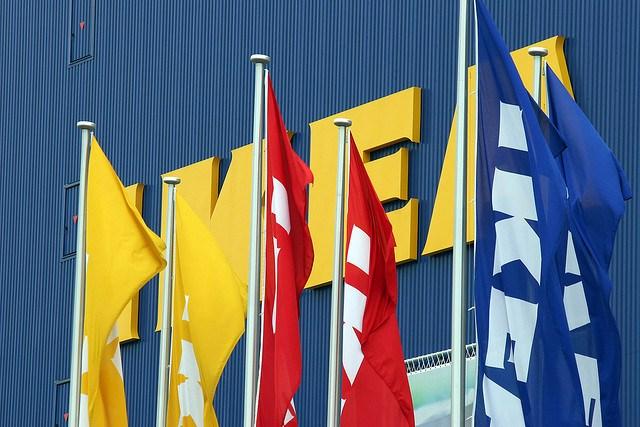
An encouraging number of companies have jumped on the bandwagon for sustainable palm oil these days. Unilever, Mars, Nestlé and Starbucks are among some of the larger food companies that have picked up the trend in past years. Some have adopted their own strategies to ensure their sources are sustainable, while others have joined the Roundtable on Sustainable Palm Oil.
But food isn't the only place that palm oil is used, as the latest convert to this sustainable approach demonstrates. According to last month's press release, Ikea has decided to make the switch.
"As a relatively small industry user of palm oil, Ikea promotes a collaborative approach to ensure the greatest positive impact," the company said. Ikea apparently uses palm oil in candles, rattan in its wicker furniture and a small number of food products it sells in its stores.
The company joined the Roundtable on Sustainable Palm Oil and has laid out a list of targets for the next two years. Its first target is to make the switch to sustainable sources by December 2015. The company has also added two other goals to its list that it says underscores its commitment to sustainability:
- No deforestation: "Forests of high value, for conservation or carbon storage purposes, will be protected." Ikea says it aims to ensure all new palm oil developments take place on land where "biodiversity and natural vegetation are already highly degraded."
- "No new development on peat," irrespective of the designated depth
The company says it has set a December 2015 deadline for global suppliers to demonstrate how they will meet the above additional requirements. It says its target date for meeting those additional requirements is December 2017.
This isn't the first time that Ikea has embraced a plan to transition to sustainable palm oil sources. In November 2010, the company announced that it would begin purchasing RSPO certificates in order to "help stimulate sustainable palm oil production." According to Ikea, it took this move in an effort to transition away from paraffin and decrease its related carbon footprint.
According to recent statements by Greenpeace, it has been working with Ikea to make the change to sustainable palm oil. Greenpeace USA Sustainability Campaigner Joao Talocchi said Ikea's move is part of a broader effort of companies to adopt more sustainable sources for this highly-used product.
According to statistics provided by Procter & Gamble, which has been working to increase sustainable sourcing in palm oil production, at least a third of the oil that is available comes from small companies in Indonesia or Malaysia, which face their own unique challenges when it comes to transitioning to sustainable sources.
In October, Procter & Gamble partnered with the Malaysia Institute for Supply Chain Innovation to host a workshop on the challenges faced by small holder farms. Greenpeace is said to have had a role in bringing about the workshop. The workshop was designed to address the common issues that make it difficult for companies like Ikea to transition to a sustainable palm oil supply chain.
Image credit: OiMax
Jan Lee is a former news editor and award-winning editorial writer whose non-fiction and fiction have been published in the U.S., Canada, Mexico, the U.K. and Australia. Her articles and posts can be found on TriplePundit, JustMeans, and her blog, The Multicultural Jew, as well as other publications. She currently splits her residence between the city of Vancouver, British Columbia and the rural farmlands of Idaho.














